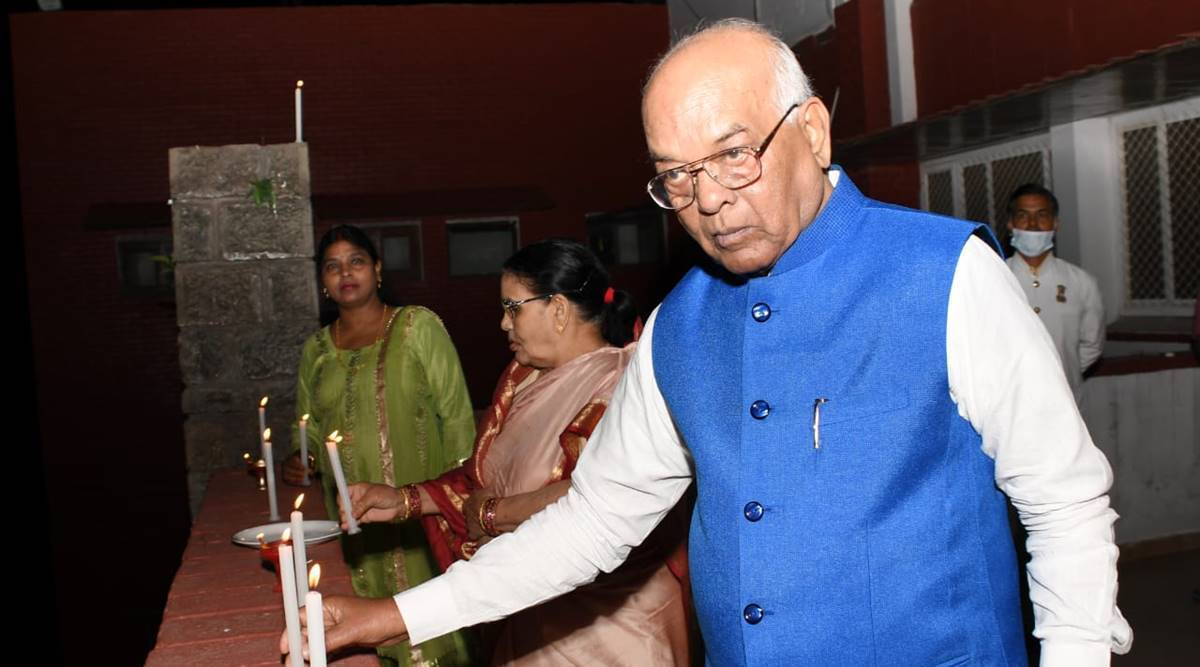The Governor, taking note of Khemka's assertion, had sought the state government's response. The government took seven months to send its comments, which have been accepted by the Governor.
 Haryana Governor SN Arya (Twitter/SatyadeoNArya)
Haryana Governor SN Arya (Twitter/SatyadeoNArya)Haryana Governor SN Arya has finally given his assent to the contentious Punjab Land Revenue (Amendment) Bill, 2020, after the state government brushed aside as “apprehensions” the objections raised by senior IAS officer Ashok Khemka who had claimed that the legislation, in its current form, would benefit the “land sharks more than the common man”.
The Assembly had passed the Bll on November 6 last year. The Governor gave his assent on June 18, nearly seven months after it was sent to him. Soon after the proposed legislation was sent to the Raj Bhawan, Haryana’s senior IAS officer Ashok Khemka had written to the Governor raising objections to several provisions, saying that the Bill that seeks to reduce litigation especially in cases of co-shared land, will actually end up benefiting the land sharks.
The Governor, taking note of Khemka’s assertion, had sought the state government’s response. The government took seven months to send its comments, which have been accepted by the Governor.
After Assembly cleared the Bill, Chief Minister Manohar Lal Khattar had said that the proposed legislation was brought in with a view to curb the partition of shares on the land related litigations.
“In the revenue records, the partition of land, where co-sharers are there, remains pending for years. People used to face lots of difficulties. We have now introduced a provision that all the co-sharers shall be given the notice to reply within 30 days. It will not be applicable to blood-relations,” the CM hadd said.
Except for the blood relations, rest all co-sharers shall be given a six month time to respond for their partition of share. “One extension of another six months shall be given. If it is not done in one year, then the revenue department will do it automatically within next three months. That will reduce litigation. There are 48 lakh such co-sharers in Haryana, especially for agriculture land,” Khattar had said.
However, Khemka, in his letter to the Governor had pointed out that “in case of partition of the land owned by co-sharers, while the amendment puts the primary onus on the shareholder seeking partition to inform other co-sharers, it is likely to raise several practical issues giving an advantage to the co-sharer living in the village over those who are living at distant places away from the land in question”.
Khemka had also pointed out that in several cases, the revenue records do not contain addresses of co-sharers. “The revenue officer in partition proceedings under Section 111-A (the new Section added in the Amendment bill) will not be able to serve personal notice upon those co-sharers who do not reside in the village as per mode of service prescribed in the Act. The only mode of service of notice would be by pasting the notice on some conspicuous place where the land is situated or by proclamation. In the partition proceedings under Section 111-A, the co-sharers in possession or residing in village will, therefore, derive an unfair advantage over other co-sharers who do not,” Khemka had said.
“The amendment”, Khenka said, “will benefit powerful land sharks in possession of common lands to the detriment of the weak co-sharers, the larger society and the environment”. The IAS officer also wrote that the amendment will severely “affect the forests and hilly lands in Aravallis and other eco-fragile regions and shamlat lands.”
The state government, in its reply to the Governor, dismissed Khemka’s assertions as “purely procedural in nature” and pertaining “to the implementation of the said Bill, after enactment”. Calling the issues raised by Khemka as “apprehensions”, the state’s revenue department wrote, “Any such like apprehension cannot put fetters on the discretion of the Hon’ble Governor, while giving his assent”.
Further defending the Bill, the government wrote, “The procedural implementation of the Bill has also been taken into consideration by the Government. The procedural flaws, if any, can be addressed by the department at its own level, as and when they rise”.
Khemka, in his letter to the Governor, had raised another vital issue pertaining to small fragmentation. “If joint holdings are compulsorily partitioned into separate shares for each co-sharer, then the size of some separate shares may be very small and agriculturally unviable. The size could be as small as a few marlas. The statutory fragmentation will lead to overall waste due to the need to provide common rasta (road) and water channels to each of the separate shares carved out in the partition. The fragmentation arising due to the present amendment is against the object of the Consolidation Act of 1948,” Khemka had written.
However, without directly replying on any of the points raised by the officer, state government wrote, “The Bill was legally in order, and is issued with the approval of the chief minister, legal opinion of Legal Remembrancer and Secretary to Government (Law and Legislative department)”.
Updated: July 1, 2021 9:33:30 pm
Link: https://indianexpress.com/article/india/punjab-land-revenue-bill-2020-haryana-khemka-7384930/
No comments:
Post a Comment